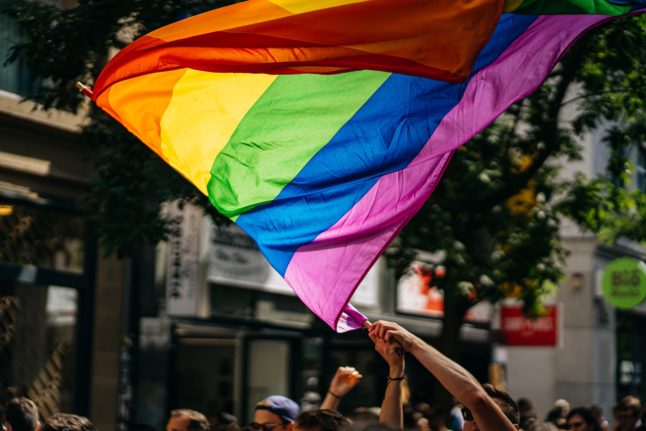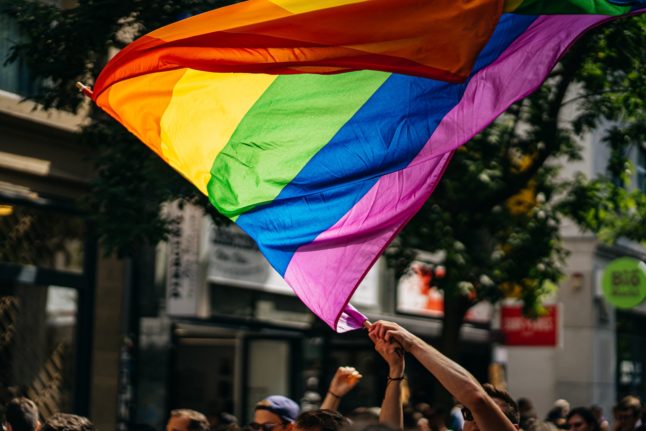Despite a national recommendation that LGBT solidarity events and celebrations be delayed, organisers are pressing on with plans to hold parades, festivals and gatherings in several cities across Norway.
Police have issued the national advice after PST said that it feared the prospect of copycat attacks after shootings near a gay club and two other locations left two dead and 21 injured last weekend.
READ MORE: Why police in Norway have advised that Pride events be postponed
Following the advice, a solidarity event scheduled for Monday outside Oslo City Hall was cancelled hours before its start.
However, people still showed up for the event anyway, which was going to be a solidarity event for the LGBT community following the shootings.
“In Oslo, we saw that people in the queer community took to the streets, and that was despite the official advice from the police and the local heads of the LGBT community,” Eivind Rindal from Trondheim Pride told The Local.
“Common people in the community have realised that you can talk about safety, but in the long run, the safety is actually in being visible and having the opportunity to participate in Pride parades,” Rindal added.
In Trondheim, a solidarity event for the LGBT community was held following the mass shooting in Oslo.
There, it was decided the event could go ahead despite the national advice following talks with local authorities.
“Here in Trondheim, we have been in a very tight dialogue with local police and the local security police here in Trondheim. They have told us that they have no knowledge of any actual local threat towards us in the Pride community in Trondheim,” Rindal said.
“They have recommended that we listen to their advice and not to the general advice (to postpone or hold off from events) from the Police Directorate, so we will go ahead as planned,” the organiser added.
Rindal said it was important for Pride and LGBT events to go ahead if it was safe to do so in light of Saturday’s mass shooting.
“It is very important that arrangements, pride parades and festivals all around Norway, especially this summer- after the pandemic, go ahead and that the queer community isn’t pushed back into the closest,” Rindal said.
In Mo i Rana, north Norway, police have said that they would have been unable to guarantee that an event planned for Tuesday could safely go ahead. However, the organisers there decided to go ahead regardless.
“We choose to carry out the event,” Margrethe Møllevik, from Mo i Rana Pride, told broadcaster TV2 on Tuesday before the event went ahead.



 Please whitelist us to continue reading.
Please whitelist us to continue reading.
Member comments